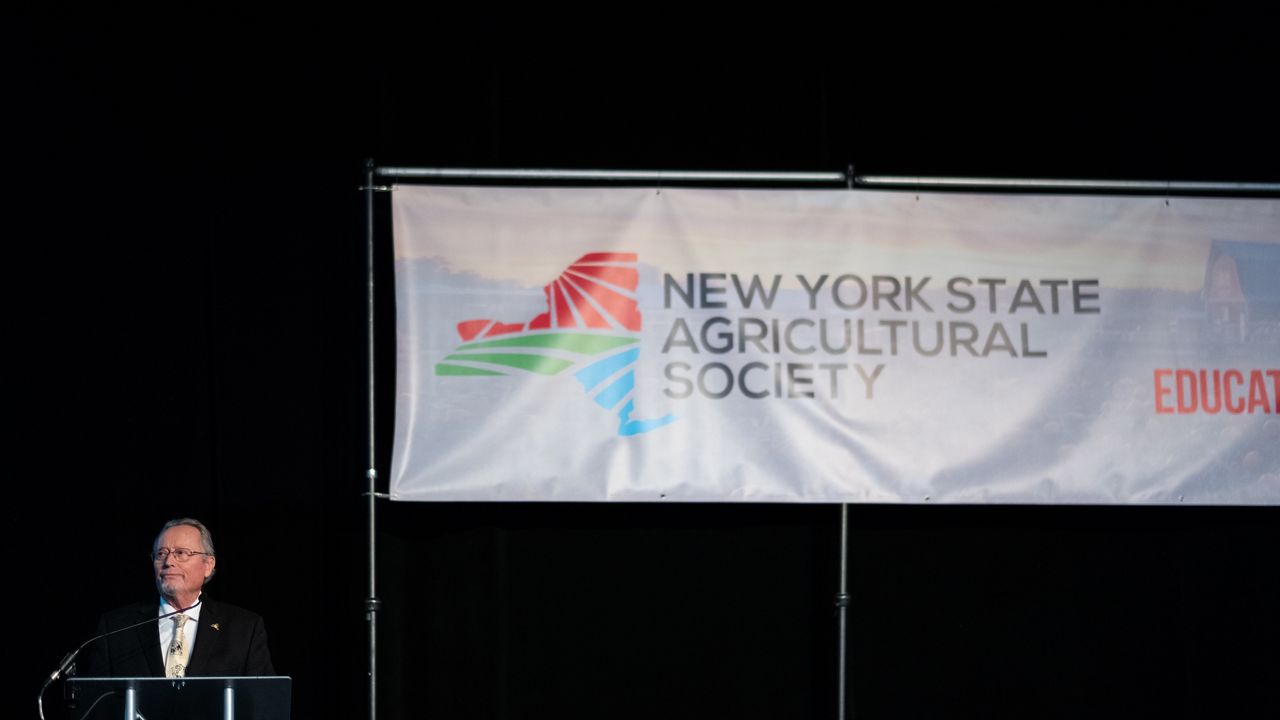With issues of climate change and trade facing the next generation of New York agriculture, state leaders said they feel confident farmers will be successful.
“One of the reasons I feel so optimistic about the future is because of these beginning and young farmers and the next generation who will be leaders of agriculture businesses, animal and veterinary sciences, food science, conservation technology and so much more,” said New York Agriculture Commissioner Richard Ball said during an annual state of agriculture address.
Programs like 4H and Future Farmers of America have been a big part of encouraging young people to enter the industry, Ball said.
“We have nearly 200,000 4H students in every corner of the state and our New York FFA is growing faster than any other state in the country,” he said.
Farmers have already begun to see the impacts of climate change and that will be ongoing for the next generation.
Anna Maxwell, a high school senior serving as the New York State FFA secretary, said she and her peers are aware of the challenges they face.
“Today’s youth in agriculture don’t worry as much about figuring out who is to blame for the challenges associated with the climate, but they are much more concerned with coming up with innovative ways to contribute to solutions to these problems,” Maxwell said during the address.
New York has taken steps to try and mitigate these impacts on farms.
“Certainly, climate change is one of the biggest challenges that we face. I’m proud to say that agriculture is 100% at the table when it comes to tackling climate change with initiatives that are making real impacts on our environment and on our farms,” Ball said.
The state’s climate-resilient farming program has provided $36 million through seven rounds of funding that can be used for projects addressing soil health, water management and the reduction of methane from manure storage.
Working with Washington
Dairy production is the largest agricultural industry for New York, and these farmers have cited concerns with an incoming new presidential administration about labor and trade.
“It’s been decades and decades that this has not been dealt with, unfortunately. Now it’s kind of a black market for workers, they’re taken advantage of, and the country needs to come together and solve this issue because we need these workers,” Ball said in an interview.
President-elect Donald Trump has discussed implementing tariffs on other countries, dairy farmers have said that would impact their industry as they export a lot of their product. While there will be changes, Ball said he remains hopeful.
“We look forward to building relationships in Washington. We’ve had a great relationship with [them], and the state departments of agriculture nationally,” he said.
Farmworker overtime changes
Last January, the overtime threshold for New York farmworkers decreased from 60 hours to 56. Farmers were eligible to apply for a tax credit to make up for that difference. However, some farms were excluded from the credit due to a technicality of how it was written. A bill passed the state Senate and Assembly to correct this, but Gov. Kathy Hochul recently vetoed it.
The Northeast Dairy Producers Association said in a statement they were disappointed by this outcome.
“While this is certainly a setback, especially at a time when farms are forecasting and budgeting for the coming year, NEDPA looks forward to supporting a retroactive solution in the state budget as promised in the governor’s veto message. We need a solution that supports all farms. The longer it takes for a fix, the greater the strains on New York’s dairy industry,” the statement said.
Ball said Hochul indeed wants to correct this issue.
“The governor is very keen on getting to the bottom of that issue and solving it. There was some challenge with the way it was and everybody acknowledged that, so she’s charged us to figure it out,” Ball said.
Hochul will give her state of the state next week and Ball said it will include some proposals that will benefit New York farmers.
“I think the state of agriculture in New York is strong,” Ball said.


